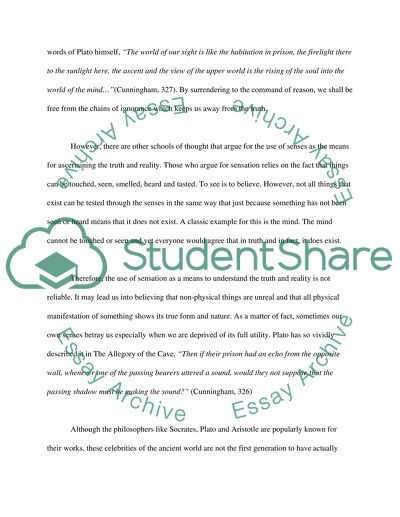Reasons for Truth and Reality Essay Example | Topics and Well Written Essays - 750 words. Retrieved from https://studentshare.org/philosophy/1433069-use-reading
Reasons for Truth and Reality Essay Example | Topics and Well Written Essays - 750 Words. https://studentshare.org/philosophy/1433069-use-reading.


